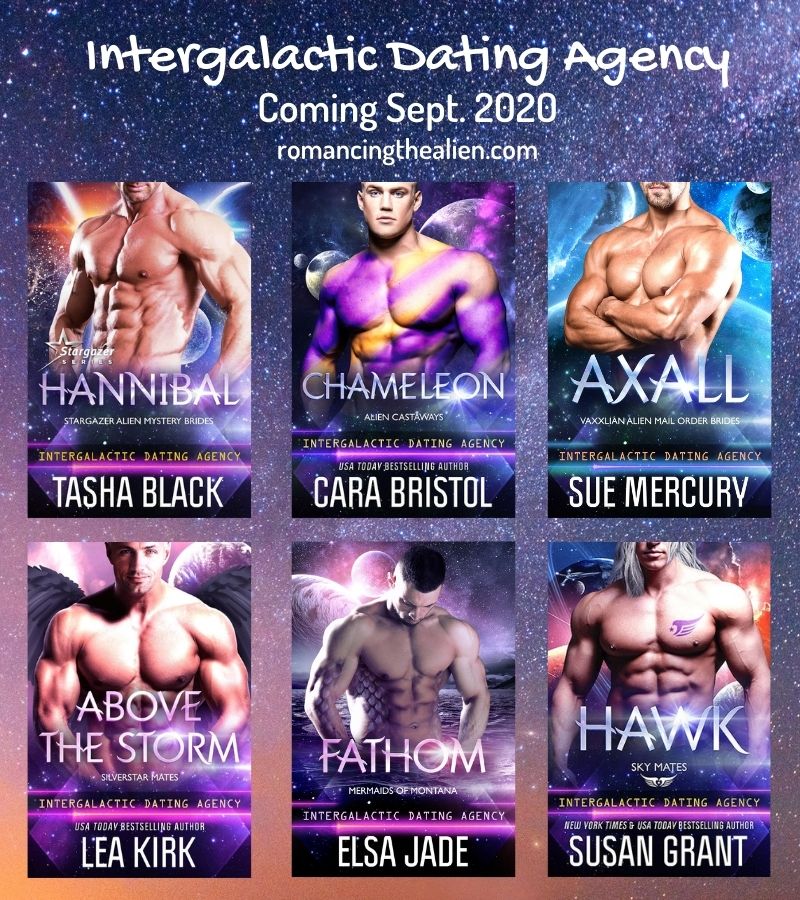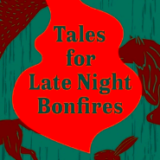Why Short Fiction?: The benefits of the short game to a writing career
Welcome back. This is the third in my weekly series of posts on how to market and sell short fiction. This week, I discuss the benefits of short fiction to a writing career.
Personally, I love short stories, both to read and to write. You may or may not agree. If you’re in the latter group, don’t worry. I’m not suggesting that you write short fiction exclusively. If you’re writing novels now, keep doing so. I’m simply recommending that even novelists should include short fiction in their writing career plan. I’m still following that same advice myself. Although I’m focusing mostly on novels now, I continue to write and publish short stories.
When I started to write with the goal of professional publication, I intentionally started with short stories, for three key reasons: to learn how to write fiction, to find out if I could actually sell without the larger investment of writing a novel, and to build some publishing credentials. Those are still good reasons for newbies, but I’ve found that there are other benefits to short fiction as well. I explain all of these below.
Learn Your Craft
First, writing short stories is an excellent way to learn the craft of fiction, to learn how to use many of the key tools that you will need in your writer’s toolbox, whether you write short stories or novels. A short list of those tools include: handling point of view, story structure, characterization, plot, pacing, scene structure, special scenes (beginnings, flashbacks, endings), dialog, setting description, exposition, information flow, linking symbolism, voice, and genre, not to mention basic sentence structure, paragraphing, punctuation, and syntax.
Yes, if you eventually move to novels, you’ll find still more skills you need to learn, such as more complex plotting, sub-plots, deeper character development, handling a larger cast of characters, bigger ideas, and pacing (again), just to mention a few. But all of the tools that I listed under short fiction will be needed for a novel, so at least you’ll start with some level of proficiency in many of the key skills required for longer work.
Short stories also offer a unique advantage over novels when you’re learning your craft, because…well, because they’re short. They let you experiment with different techniques and approaches from one story to another, practising using a different tool with each story.
Perhaps all your stories so far have used limited third-person point-of-view (POV) in past tense, and you’d like to try writing in first-person, present tense. Or try a story with an unreliable narrator or an unsympathetic main character. Or a story where the POV character is not the main character. Or a story heavy on dialog or setting description. Or you’ve been writing SF, and you’d like to try fantasy or horror or mystery. Or whatever. The point is you can practice and develop more techniques and try more aspects of your writing in twenty 5,000-word short stories than you could in one 100,000-word novel.
Test the Waters
When I started, I had no idea whether I’d ever be able to sell anything that I wrote. So I decided that I’d rather invest the time in writing and trying to sell short stories than in writing and marketing a novel. It just seemed like a smaller hill to climb to find out if I could sell my fiction.
That reasoning will probably appeal to the fearful beginner that I mentioned in last week’s post. It’s amazing what some encouraging rejections on a short story can do to your confidence, not to mention that first sale. Short fiction provides you an opportunity to get feedback on the progress of your craft much earlier than does the novel route.
Build Your Resume
For many years, especially in the SF&F field, the standard advice was that short fiction was the best way to “break in” as a speculative fiction writer and to build a reputation with sales and awards.
It’s no longer the obvious way to start, but the argument still holds a lot of value. Once you can include sales to professional markets (note the emphasis) in your submission cover letters / emails, you’ll at least start to climb out of the slush piles for some of those markets. That doesn’t guarantee any more sales, but at worst, your story will be read faster (I’ll write more on cover letters, slush piles, and the selection process that editors follow in future posts). And a published story in a pro market at least opens the possibility of getting on award ballots and maybe even winning, as well as possibly being selected for any of the several annual “Best of” anthologies.
Generate or Explore Ideas for Novels
On the creative side, short fiction provides the opportunity to generate bigger ideas. You may discover as you write what you thought was a one-off little story that this particular idea is bigger than you originally imagined. Or that you really enjoy these characters or find that they have a larger tale to tell, a tale that requires a novel. Short stories also allow you to explore an idea for a novel that you already have, or to play around in that universe for a bit before you tackle it in longer form.
Build a Backlist
As you continue to write and sell your short fiction, you will be building your backlist: your previously published stories for which you retain the rights or for which the rights have reverted to you (assuming, of course, that you didn’t give those rights away by signing a bad contract).
I’ll be dealing with licensing of rights next week and with short fiction contracts later in this series. For now, just understand that as long as you handle your rights to your fiction correctly, you will have a backlist which you can then “sell” again (you’ll understand the quotes after next week’s post). This includes reprints of your stories, foreign language translations, collections of your short fiction, and independently publishing your backlist. More on all of this in future posts.
Build a Network
As you begin to make contact with editors and as you sell your stories, you will also start to build your network in the writing world. This will take time, but assuming you are not a difficult individual to deal with and meet your deadlines, you will have editors who will ask you to submit to their anthologies or special issues of their magazines, or, as happened to me with a French publisher, propose publishing a translated collection of your work.
Learn the Publishing Business (sort of)
Selling short fiction will also provide you exposure to and experience with one portion of the publishing industry. Now, short story publishing is hugely different from novels, especially in terms of the marketing process, the markets you’ll deal with, and most definitely the legal and contractual complexities.
However, just as there are aspects of the craft of writing short stories that you will be able to use again when writing novels, so are there aspects of publishing short fiction that will help you when you move to novels. These include such things as knowing when your work is ready for market, finding markets, understanding licensing and rights, dealing with rejections, dealing with editors, understanding basic contract terms, dealing with editing and copy-editing requests, and the administration of tracking of submissions, publications, contributor copies, and, of course, getting paid.
Money (sort of)
Professional rates in speculative fiction markets are 5-6 cents a word right now, which means $250-$300 for a typical short story for a first rights sale. You’ll find some markets that pay more, but most will be in that range (actually, most will be much lower than that, but you won’t be submitting to those if you follow the advice I’ll be giving on selecting markets in an upcoming post). So you won’t get rich. However, if you write fast (and well) and in multiple genres, and if you retain and leverage the multiple rights you hold on your stories, you can certainly supplement your income. Just don’t plan to quit your day job. I’ll write more on generating multiple income streams from your fiction in a future post.
So now, I hope you’re convinced that, regardless of the writing career that you’re planning, including short fiction as part of your plan just makes good sense.
Next Week
Next week, I’ll be dealing with one of the most important topics for a writer to understand. I hope you’ll keep dropping by.
Next week: Why You Never “Sell” a Story: Understanding rights and licensing
As always, please feel free to add comments and questions, and I’ll respond as best (and as soon as) I can.
~~~~~
PLAYING THE SHORT GAME — The Book!
I am thrilled to announce that I have now repackaged the 32 separate posts that make up this blog series into a book titled Playing the Short Game: How to Market & Sell Short Fiction. The book is completely updated and reorganized, with new material not in this blog series, plus an introduction from multi-genre, multi-award winning writer and editor, Kristine Kathryn Rusch. Here’s an extract from Kris’s intro:
Douglas Smith is the best person to write this book. … He’s one of the few people who has probably published more short fiction than I have, and in more countries, and more high-paying markets. He loves the short story as much as I do, and he’s good at writing them.
He’s just as good at the business side of the profession. He knows more about marketing short stories to other countries than I do. He understands how to manage short fiction contracts very well. He’s up-to-date on 21st century publishing practices, and he has a toughness that the best business people need.
We short story writers have needed a book like this for decades. I’m glad Doug decided to write it. Read and reread this volume. Because you’ll learn something each time you do. And take Doug’s advice. It’s spectacular.
—Kristine Kathryn Rusch
More information on the book, including full buying links for all major retailer sites, is available on my website here.
As a special offer to Amazing Stories readers, I’m offering discounts in my bookstore. Get the ebook or print edition at a discount by using the coupon codes AS-SHORT-E or AS-SHORT-P respectively at my website bookstore. Enjoy!










Completely agree. I've just started taking short story submissions for my website (SciFiIdeas.com) and it's amazing how many writers have never written short fiction before. They just jump straight to novels without honing their craft first.
Mark, thanks for your post. I’ll check out your website. And sorry for the very delayed reply. I didn’t get a notification of a comment on this post.
Doug
Thanks, Terry. Nice to hear your perspective on this. I think part of the problem is that a lot of newbie writers have never read much short fiction, so the tendency is to jump to the more popular longer form with the novel. But as you say, the short story requires a smaller investment of time to complete. More importantly, to me at least, is that you can try out (and hopefully learn) so many different tools that a writer needs in their tool box via a bunch of short stories, that you could never attempt to use within a single novel.
I agree with everything Doug says in this post, and particularly wanted to
emphasise 'Learn Your Craft' from his list of the benefits of writing short
fiction.
I coach/teach a lot of new writers and the vast majority start their writing
lives with a novel. Which isn't surprising, considering it's novels that get
most of the publicity where writers are concerned, and where most of the
money's to be made, if there's any to be made. The problem is that everyone
has to learn the craft, which means whatever you write first is going to be
filled with mistakes. Nothing wrong with that. It's natural. But if that
first thing is a novel, the author will have invested a whole lot of time and
emotion into it. And probably invested quite a lot of their dreams too. So
they can find it hard to give it up and try something different where their
new skills will not be inhibited by having to work within those mistakes.
On the other hand, if you start with short fiction, you're not going to be
upset if a 4000 word story doesn't work. You'll just put it to one side and
try something completely different. Which also might not work; but no matter.
While you're heading towards writing something publishable, you're developing
flexibility and skills. But if you're stuck on that first novel you just
can't give up, there's less chance you're developing as a writer. And in the
worst case, you might even be put off writing for good, because it seems you
just can't get anywhere with it.
So, I often encourage writers to try short fiction. The fact that so few do
is a mystery to me. Maybe Doug has the answer!
Hi Doug – –
I've been in several writer's groups now and it seems that the more determined writers would agree with your assessment … that short works provide that knowledge and craft base to succeed.
You can bet that I'll be one of the people following your articles. One of the things I've learn to do is to constantly revisit the fundementals of writing. I didn't do that as a youngster and the learning curve gets steeper the older you get.
One book I rely on is Roy Peter Clark's "Writing Tools – 50 Essential Strategies for Every Writer." Every tool runs about 4 pages, followed by exercises. I find that regular review of this work keeps both my skills up and the pressure on. Staying on the hunt, by reading articles like yours, keeps the intellect sharp.
Good article. I look forward to more from you.
Thanks, Jay. I'll check out Clark's book. If you haven't seen the first two posts in my series, you can check them out here: https://amazingstories.com/author/douglassmith/